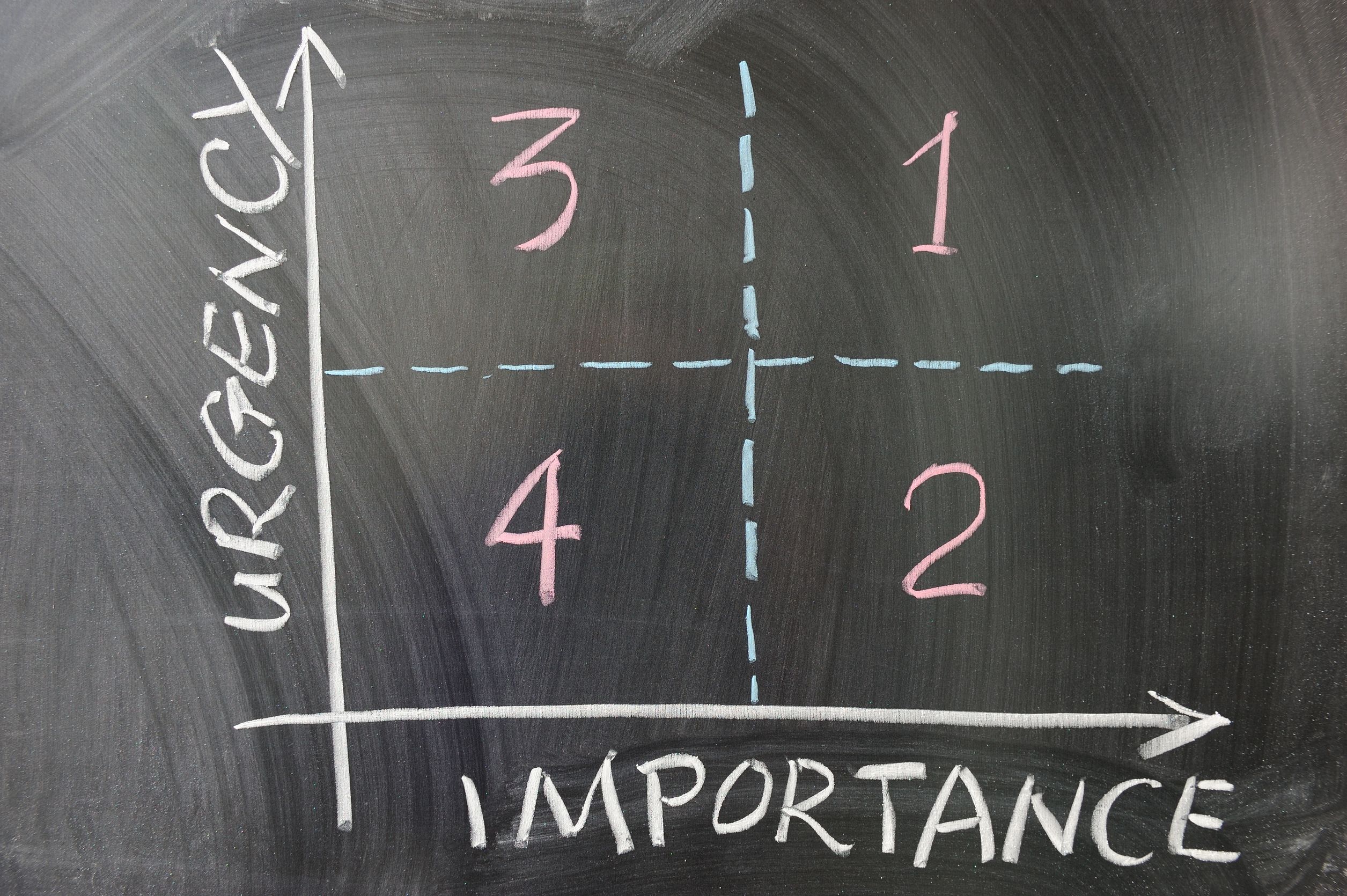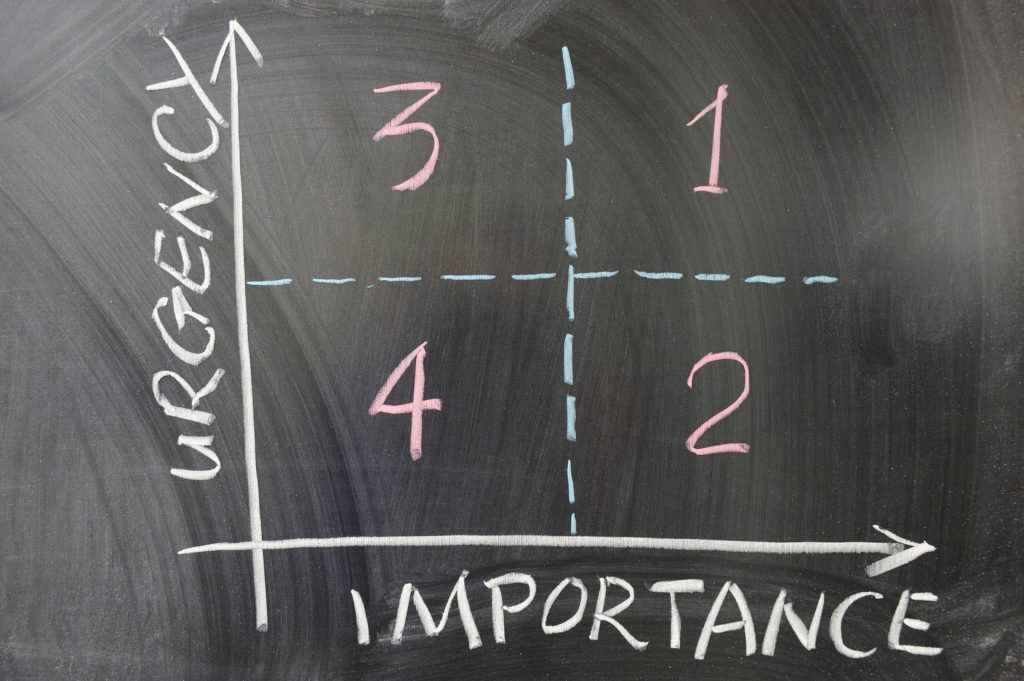The great Yankees catcher and manager Yogi Berra once quipped about a popular restaurant “Nobody goes there anymore. It’s too crowded.” It’s an amusing contradiction but often our days seem to hold a similar, if less amusing, contradiction. See if you recognize this experience: “I had so much to do today that I didn’t get anything done.” In other words, there were so many things demanding your attention that you didn’t have time to work on what you needed. In other words, “I was so distracted by what had to be done I didn’t have time to do what needed to be done.” In essence you were busy but not productive. This is the downward spiral that leads to squandering important time on non-important tasks and to be truly productive you have to stop this habit. You can’t give your best to the opportunities you have to shine if you don’t have time to focus on them. The vast majority of people in your workplace are also struggling (and failing) at this so how do you become the one that successfully breaks that cycle? It takes proactive work and here is the first step: Understand the critical difference between the urgent and the important.

“I was so distracted by what had to be done I didn’t have time to do what needed to be done.”
To get toward a higher productivity we can look to one of its best examples: Dwight Eisenhower. In case you are a little fuzzy on history let’s remember that Eisenhower was the leader of the Allied Forces and the chief architect of the D-Day invasion of World War II. Keep in mind, this was the largest logistical exercise in history on the single most pivotal day of the 20th century. On top of that he served two terms as President where his attentions funded the beginning of NASA, the national interstate system, and the research group that culminates in inventing the internet. This is a guy who knew how to get things done. One can imagine his days threatened to get away from him. He had a simple four step process to deciding where he needed to spend his time and it’s one that anyone can use. Let’s take a look.
“What is important is seldom urgent and what is urgent is seldom important.” Dwight D. Eisenhower
Eisenhower famously is remembered for this insight: “What is important is seldom urgent and what is urgent is seldom important.” It’s easy to fall into the trap of believing everything is important. Some things are but others that take our time are revealed as not. So, how do you decide where items fall? The Eisenhower Matrix suggests four categories for your time and energy:
What are ways urgency is killing your time on important work?
- Important and urgent: These are items that pop up unexpectedly that would without immediate attention bear negative consequences. These aren’t items that come up because of poor planning but usually an outside circumstance.
- Important but not urgent: These are items that can really move the work toward the goals and mission of the organization. These take high-focus and have rewards for all involved if done well. This is where you need to spend your time if you want to be productive.
- Urgent but not important: These are most likely response type of actions. Emails, requests for meetings and returning phone calls are all examples. These need to be done in order not to appear unresponsive but you can’t live each day reacting to this category. Proactively calendaring time for these actions in the week will benefit your time toward the top two categories.
- Neither important nor urgent: These are most likely your procrastination defaults. When we are too tied up to think of what to do next we to default to checking email, social media, and the like. This again robs time from the top two categories. A well-planned daily calendar will keep you moving from task to task and not getting distracted.
To be at your most productive you want to spend the most time you can in the top two categories (intentional planning time set aside for Category 2 and time created for Category 1 existing because of proper management of Categories 3 and 4). What are ways urgency is killing your time on important work? You can’t be at your best if you can’t focus on the things that only you can do. In order to do so you need to plan your daily calendar to weed out items not important or urgent, focus on the most important, and leave some room to deal with the urgent and important. It takes some experimenting but if you will take the extra time to look at your most important work, intentionally place time on your calendar for it, and not allow your time to be hijacked by things that don’t need to be on there then you are moving down the road toward having productive days over busy ones.
Go Deeper
Learn the exact steps you need to take in order to set your ideas up for success!
